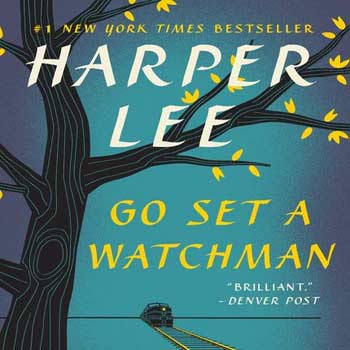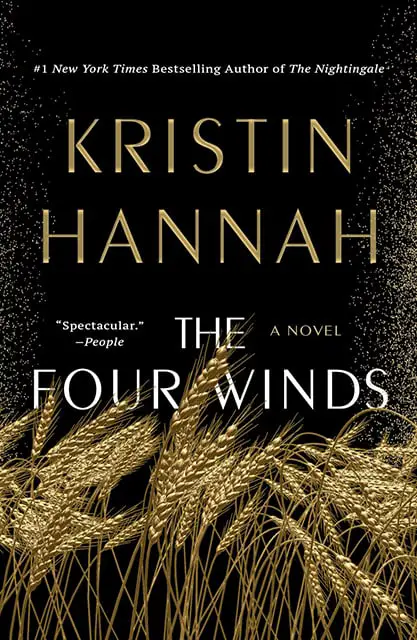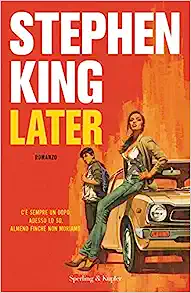A beloved author, Harper Lee, famous for “To Kill a Mockingbird,” surprises the literary scene with a long-lost novel. But, hold on! This unexpected discovery sparks a big debate, leaving readers scratching their heads. What’s the fuss all about? The controversy primarily revolved around the circumstances of its publication and the portrayal of the character Atticus Finch.

Take a stroll with us through the twists and turns of the controversy surrounding ‘Go Set a Watchman’ and discover why it has become the talk of the town in the literary realm. Get ready for a tale of twists, turns, and lots of bookish buzz!
Go Set a Watchman Controversy
In 2015, the release of “Go Set a Watchman” triggered significant controversy, with some publications labeling the timing of the book’s release as “suspicious.” This suspicion stemmed from several factors that raised eyebrows among readers and critics alike.
Harper Lee’s Declining Health:
Firstly, Harper Lee’s declining health became a point of concern. The acclaimed author, known for her reclusive lifestyle, had long maintained that she would not write or release another novel. Her advanced age and health condition fueled speculation about the circumstances surrounding the discovery and publication of “Go Set a Watchman.”
Timing of the Announcement:
Adding to the suspicion was the timing of the announcement. Only two months prior to the revelation of the novel, Harper Lee’s sister, who also served as her caregiver, had passed away. This raised questions about the emotional and logistical aspects of the situation, with some wondering how these personal events may have influenced the decision to publish a previously unknown manuscript.
Controversial Character Portrayal:
Many readers were surprised and even disappointed by the way Atticus Finch, a beloved character from Lee’s earlier novel “To Kill a Mockingbird,” was depicted in “Go Set a Watchman.” In “To Kill a Mockingbird,” Atticus is portrayed as a moral and principled lawyer who defends a black man wrongly accused of raping a white woman in the racially charged American South of the 1930s.
In “Go Set a Watchman,” set 20 years later, Atticus is shown as holding racist views and opposing desegregation efforts. This revelation about Atticus’s character was unsettling for many readers who had admired him in “To Kill a Mockingbird.” The dissonance between these two portrayals added another layer to the discussion about the nature of literary characters and the author’s original vision.
Exploitation Concerns:
Some critics also argued that the publication of “Go Set a Watchman” was a result of exploitation, taking advantage of Harper Lee’s advanced age and potential vulnerability. Concerns were raised about whether Lee fully consented to the release.
Ethical Debates:
The circumstances surrounding the discovery of the manuscript and its subsequent publication led to ethical debates. Questions emerged about whether Harper Lee, who was known for being private, truly intended for “Go Set a Watchman” to be made public and whether she was aware of the implications.
Financial Motivations:
Additionally, concerns were raised about the financial aspects of the publication. Some questioned whether the decision to release “Go Set a Watchman” was motivated by commercial interests, given the potential for significant profits from a new Harper Lee novel.
In essence, the controversy surrounding “Go Set a Watchman” was not only about the unexpected publication of an early draft but also tied to concerns about Harper Lee’s well-being, her previous statements about not releasing another novel, and the personal challenges she faced, including the recent loss of her sister. This context contributed to the broader debate on the ethics of publishing and the impact of an author’s personal circumstances on the reception of their work.
Did the Controversy Impact the Success of ‘Go Set a Watchman’?
The controversy surrounding “Go Set a Watchman” had a mixed impact on its success. Initially, the anticipation and curiosity surrounding the release led to a surge in pre-orders and early sales, driven by the excitement of a presumed sequel to the iconic “To Kill a Mockingbird.” However, once the true nature of the book became widely known—that it was essentially an early draft of Lee’s classic novel and not a standalone sequel—the sales trajectory shifted.
The backlash and disappointment from readers and literary critics affected the book’s long-term commercial success. Many who had pre-ordered or purchased the book early on may have felt let down by the revelation, leading to a decline in sales after the initial surge. Additionally, the controversy may have dissuaded potential buyers who were deterred by ethical concerns surrounding the publication and questions about the author’s intent.
While “Go Set a Watchman” still sold so well, it did not achieve the sustained success or cultural impact of “To Kill a Mockingbird.” The controversy undoubtedly played a role in shaping the book’s sales trajectory, influencing both the initial surge and the subsequent decline in demand.
But I must say according to my research, despite all the drama, it’s clear that the book didn’t flop just because of the controversy. People were curious because it’s connected to ‘To Kill a Mockingbird,’ and that curiosity helped the book do well commercially. Readers and experts have been digging into the novel, thinking about its themes and how it links to Lee’s famous work. Even though it got off to a rocky start, the controversy actually pushed the book into the spotlight, making us think more about its literary value and its place in history.
Was Go Set a Watchman successful?
In the book world, success isn’t just about critics liking it. It’s also about how much people keep talking about it and how it affects our culture. ‘Go Set a Watchman’ managed to grab reader’s attention, making them think about things like authorship and the characters’ changes over time.
The commercial success of “Go Set a Watchman” was staggering .The novel did indeed generate significant interest upon its release, and its first-day sales were impressive. It sold a ton of copies—over 700,000 in the first day and more than a million in the first week in the United States within just one week of its release. The book also made an impressive impact in the UK, where it sold over 100,000 copies within the same timeframe.
The fact that “Go Set a Watchman” became the fastest-selling book in the history of HarperCollins, the publishing giant behind the novel, underscores its widespread appeal and marketability.
This initial success was because readers were curious about Harper Lee coming back to write, and they wanted to know what happened to the characters they loved from “To Kill a Mockingbird.”
As for bestseller rankings, “Go Set a Watchman” did debut at the top of several bestseller lists, but it didn’t have the lasting impact and cultural resonance that “To Kill a Mockingbird” has maintained since its publication in 1960.
The book didn’t win any big literary awards, probably because of all the drama around its release and mixed reviews from critics. Still, it didn’t flop—it got a lot of attention, and people kept talking about it. Even though it had a bumpy start, the controversies actually helped the book get noticed, making us think more about its value and its place in history.
So, despite all the fuss, this final word is that the book has proven it can stick around and be successful, showing that even with drama, a book can still be a hit.
Messages of Go Set a Watchman
“Go Set a Watchman” by Harper Lee is a thought-provoking book that carries several important messages. Let’s explore them:
- Understanding Others:
The book emphasizes the importance of trying to understand others, especially those with different perspectives and backgrounds.
It encourages us to put ourselves in other people’s shoes to see the world from their point of view.
- Challenging Prejudice:
“Go Set a Watchman” tackles the issue of racial prejudice. It teaches us to question and challenge our own prejudices and preconceived notions.
The story encourages us to look beyond the surface and recognize the humanity in everyone, regardless of their race or background.
- Family Dynamics:
The novel explores complex family relationships. It shows that families can be imperfect, and disagreements may arise, but there is value in understanding and accepting each other’s differences.
It encourages open communication and empathy within families.
- Questioning Authority:
The book challenges the idea of blindly accepting authority. It urges us to question societal norms and expectations, encouraging independent thinking.
It promotes the idea that it’s okay to question the status quo and work towards positive change.
- Self-Discovery:
The protagonist, Scout, undergoes a journey of self-discovery. This encourages us to reflect on our own values, beliefs, and identity.
It reminds us that personal growth and understanding oneself are crucial aspects of life.
- Dealing with Change:
The story reflects on the inevitability of change. It teaches us that life is dynamic, and we must learn to adapt to new circumstances.
Embracing change and learning from it is an essential part of personal and societal growth.
In essence, “Go Set a Watchman” encourages us to be more open-minded, compassionate, and willing to question the world around us. It reminds us that the journey to understanding and positive change begins with self-reflection and empathy towards others.
The Bottom Line
The controversy over “Go Set a Watchman” highlights the intricate nature of literary interpretation and the author’s relationship with their work. Some argue the novel offers valuable insights into Harper Lee’s characters and ideas, while others question the ethics of publishing a work that may not align with the author’s intentions.
The controversy makes the book interesting. It goes beyond what you expect and makes you think even after you finish reading. So, pick up the book and explore it.


